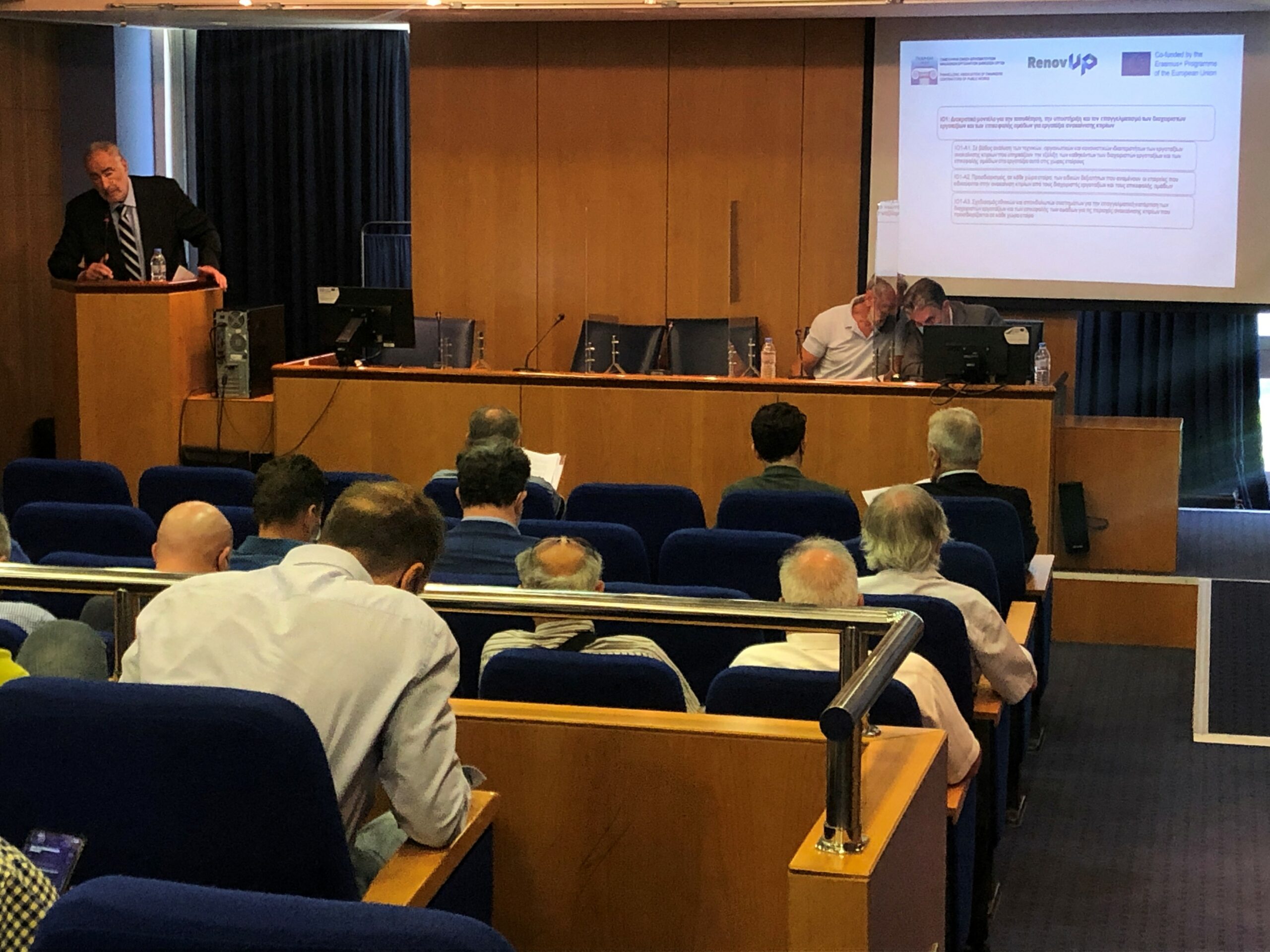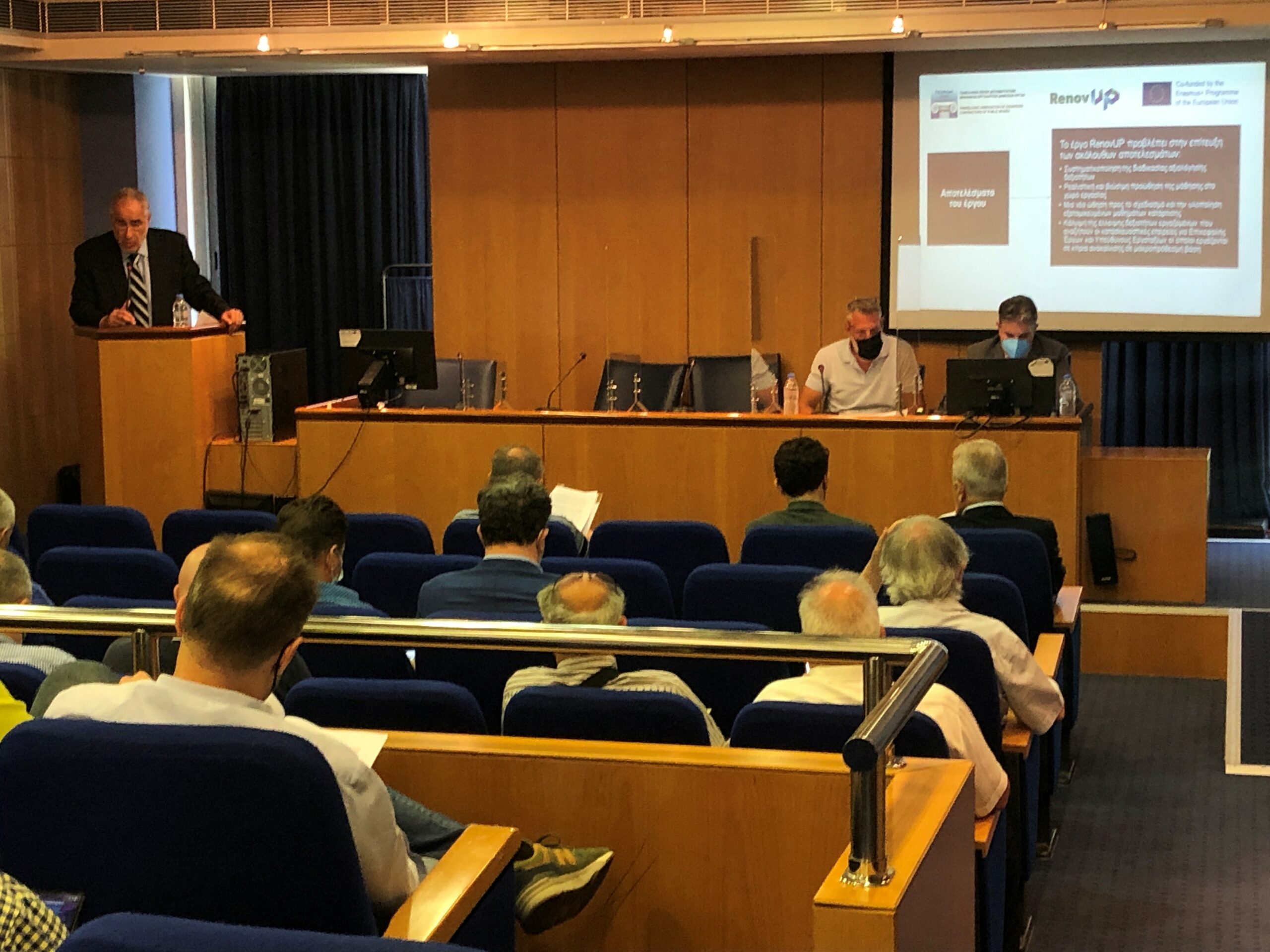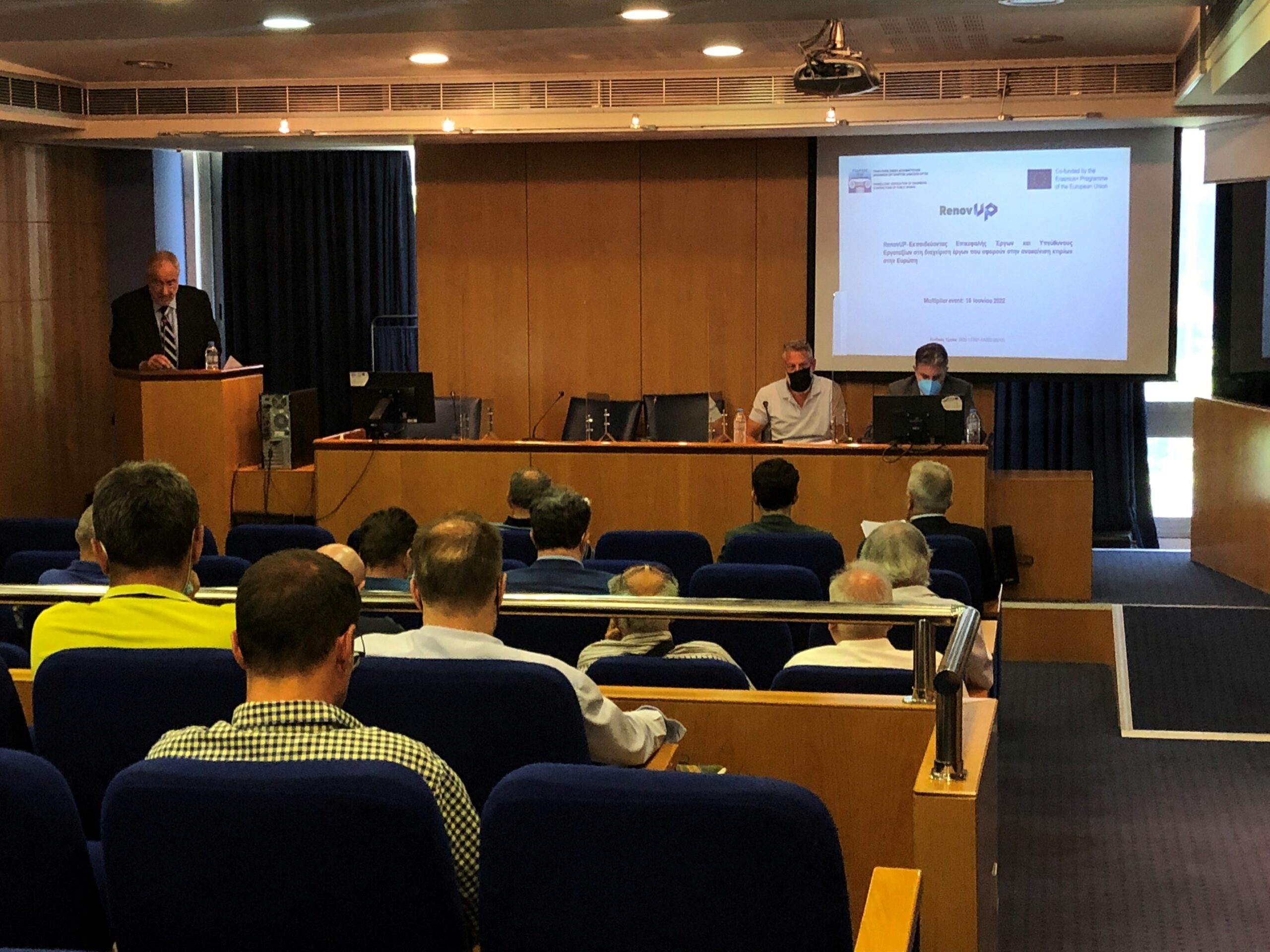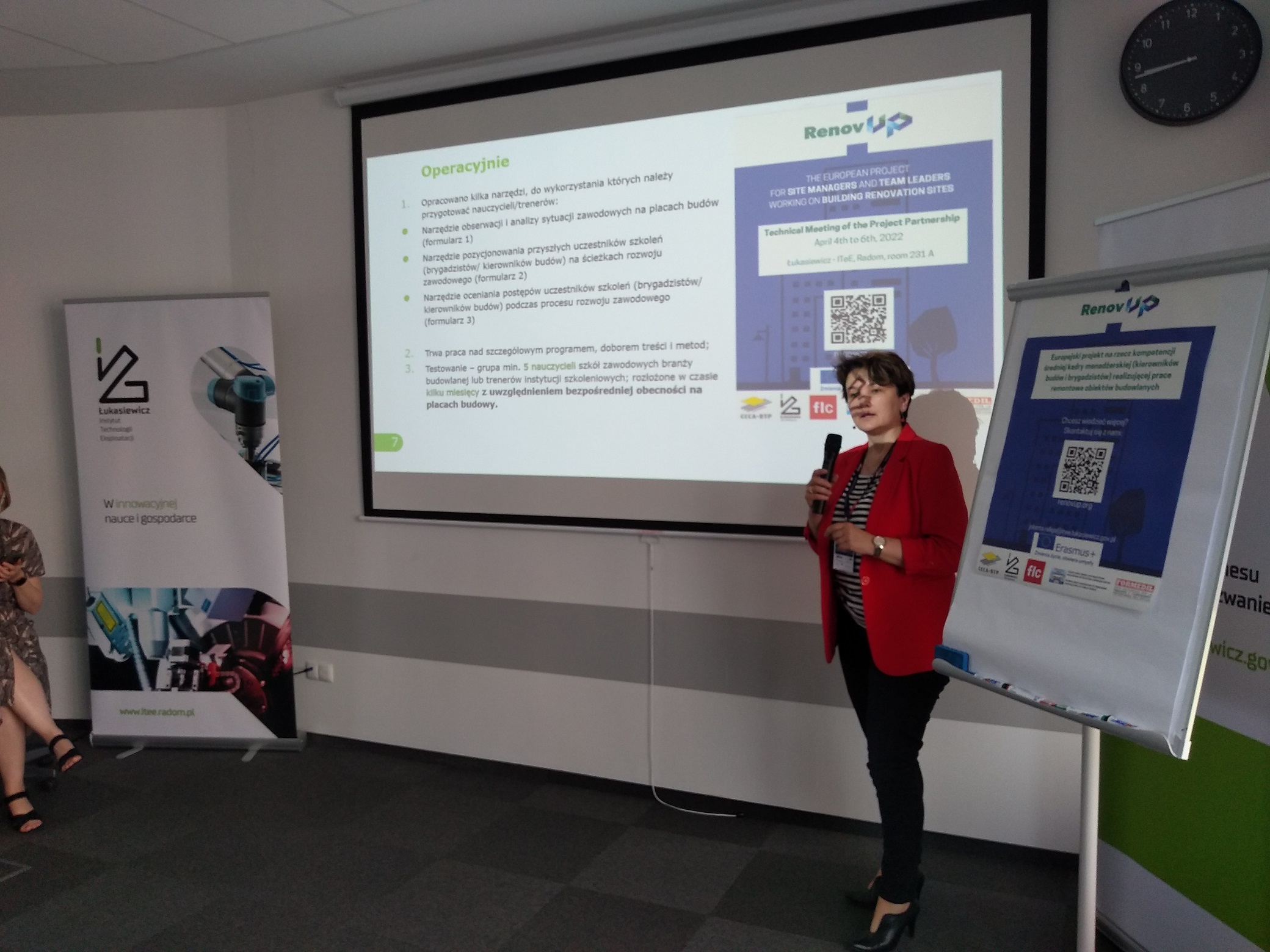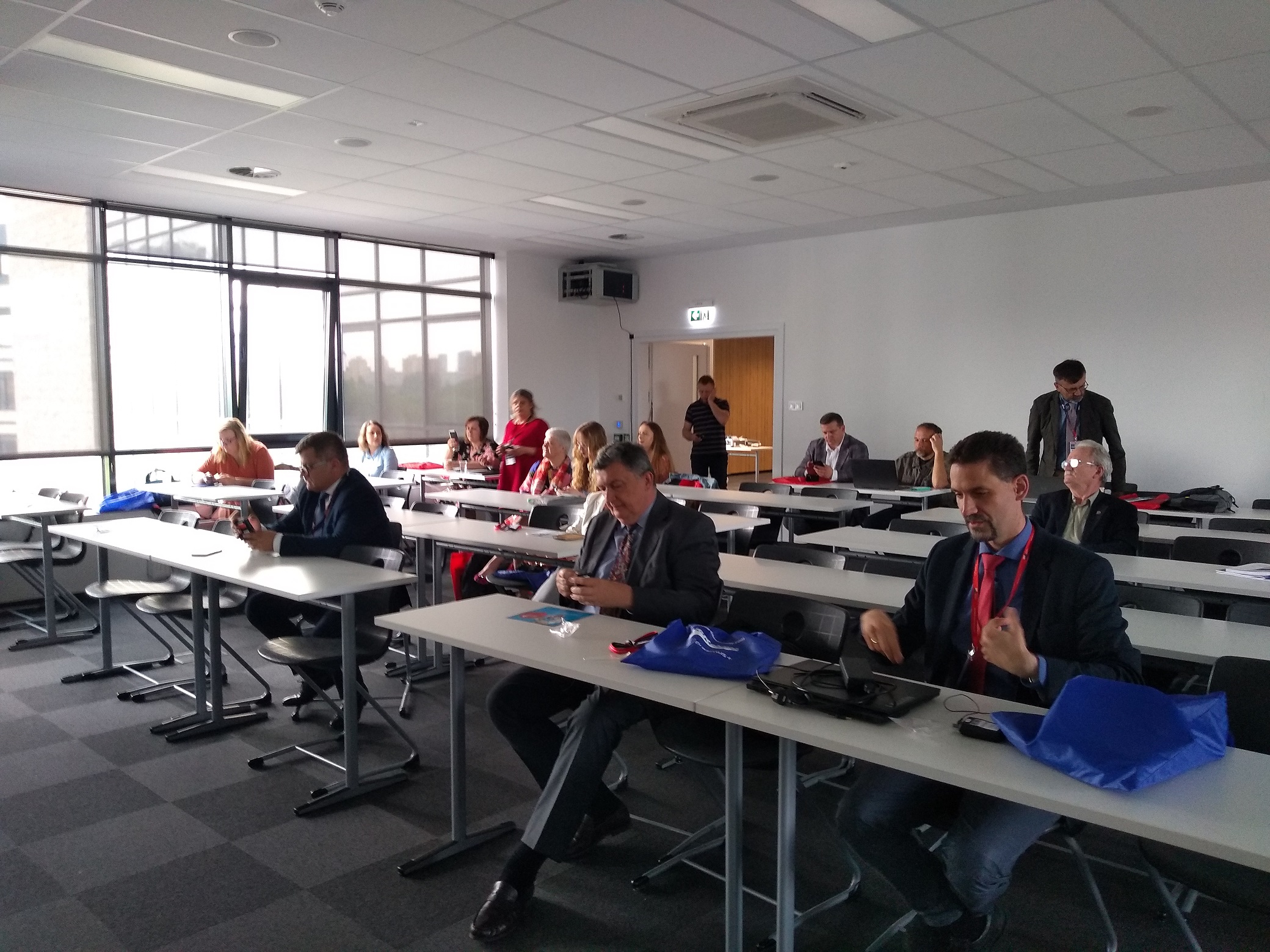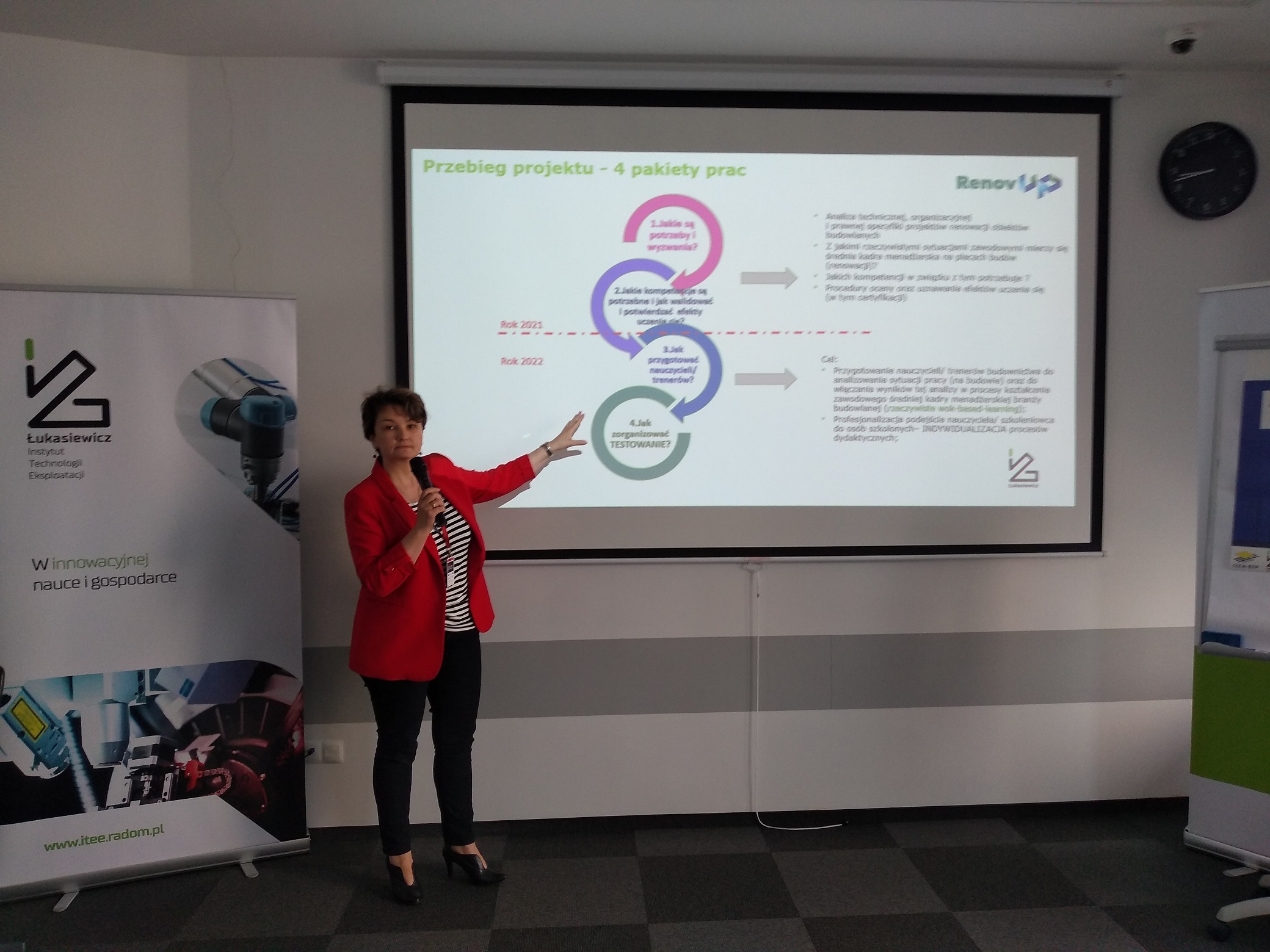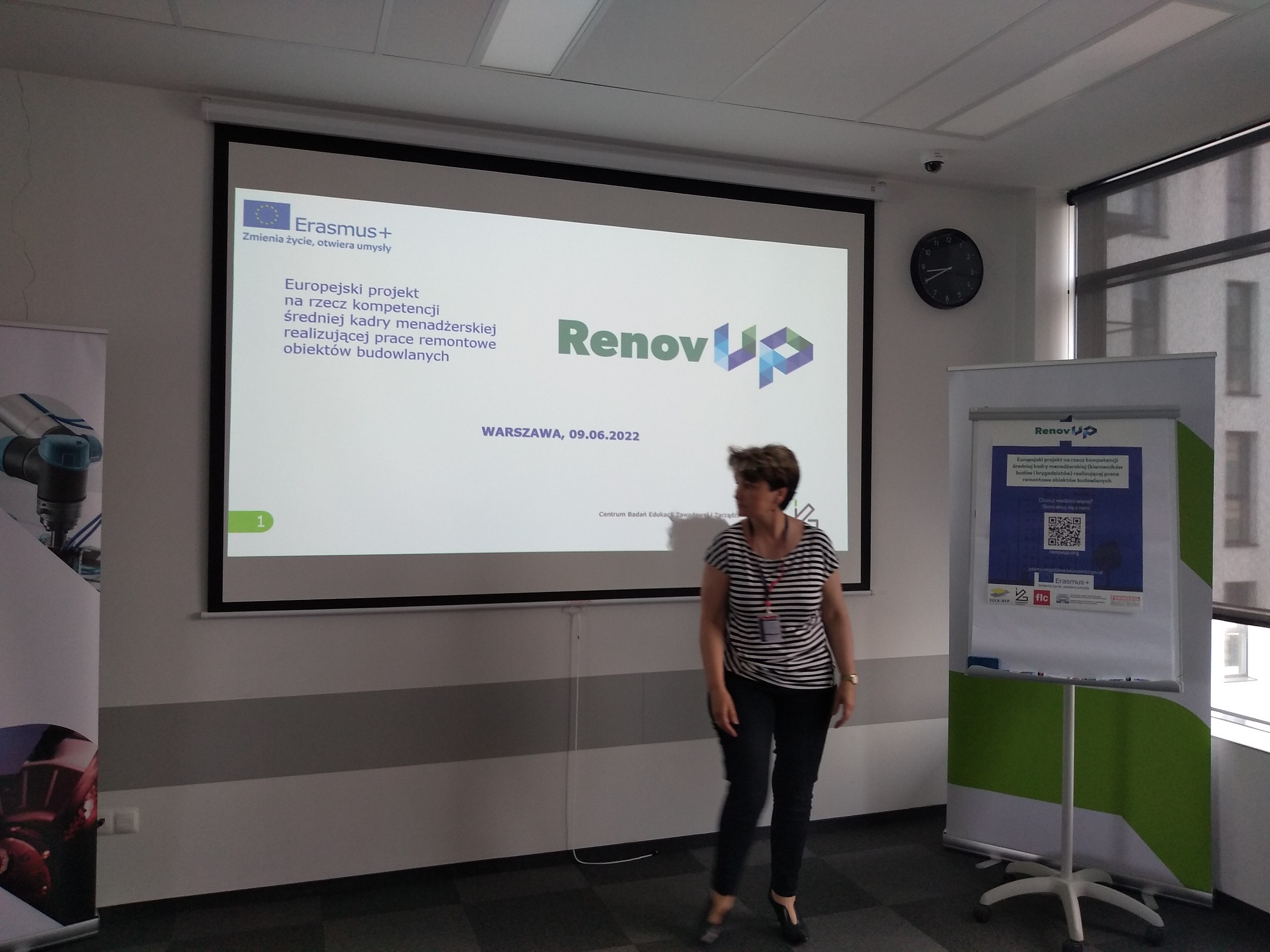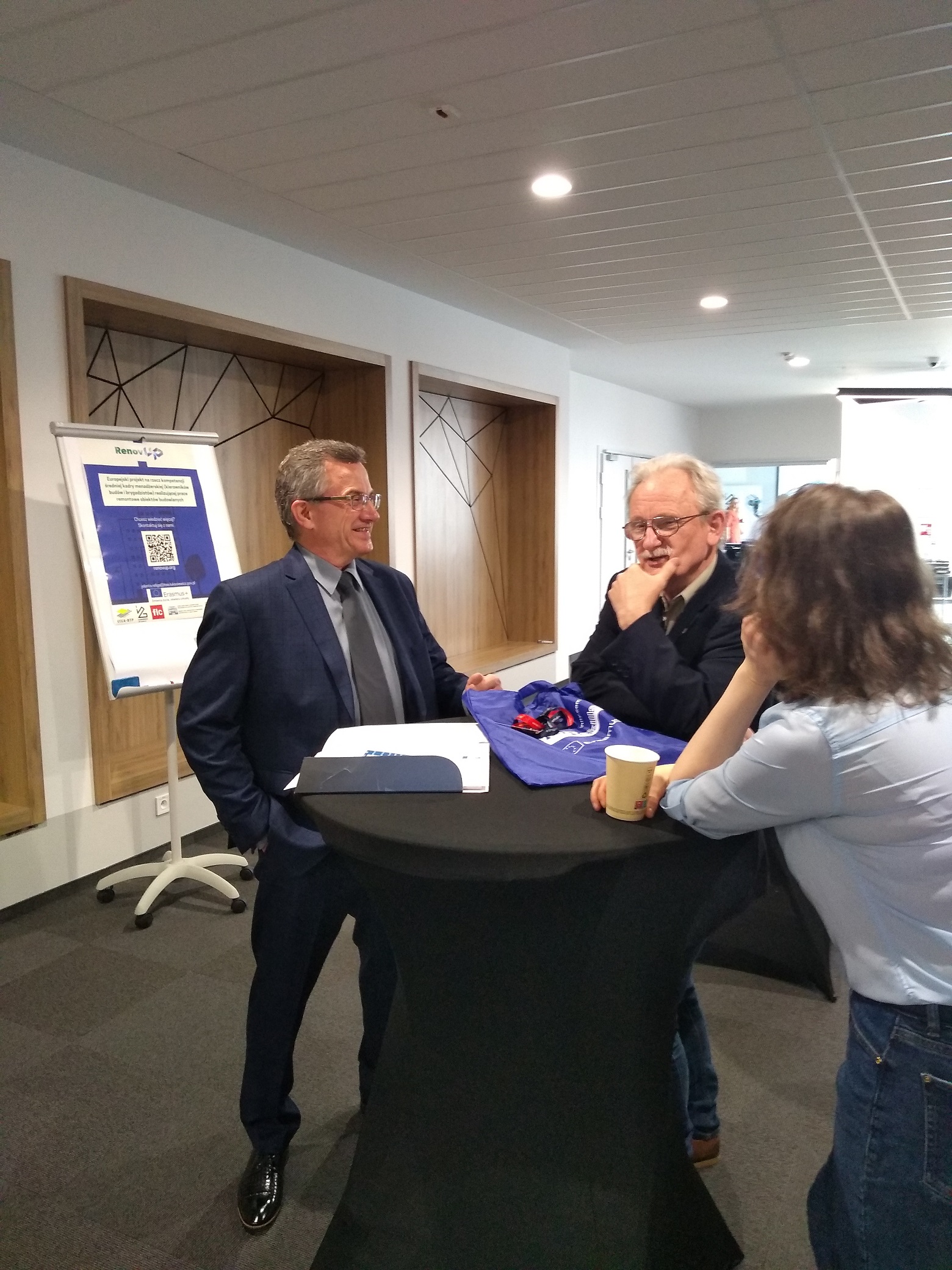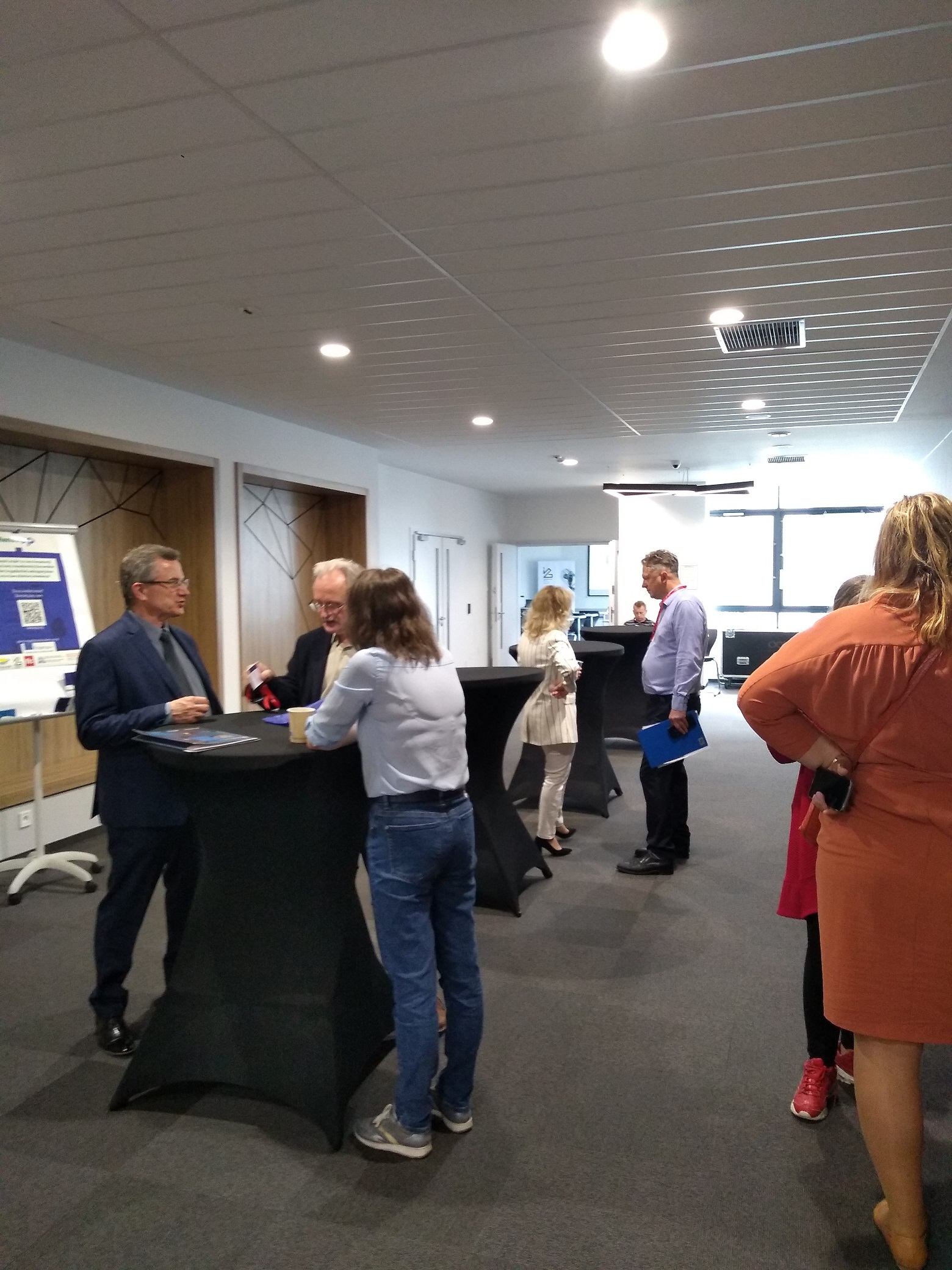Multiplier Event in Greece
On June 16th, 2022 was held the Greek Multiplier Event disseminating the results of the RenovUp project in Athens.
The overall aim of the seminar was to present to the research results of IO1 and IO2 to a wide spectrum of participants (representing the construction industry and VET stakeholders), as well as to share the next steps to be undertaken for IO3 and IO4.
The Greek RenovUp Multiplier Event took place in the context of PEDMEDE’s General Assembly in order to exploit the current development of the project as well as to engage as much members as possible in the project.
IO1 and IO2 results were birefly presented at a transnational scale but it was chosen to focus more on the Greek national context and how these results are applied to it. Training paths, evaluation grids and Open Badges which designed during the project were also described to the participants.
In the end, a Q&A session was organised in order to allow participants to discuss the different topics tackled during the event, and the exchanges focused mainly on training paths as well as the current state of VET in Greece, and how the tools may be adapted to the practice of Greek trainers and companies.
The necessity to build trust between external evaluators and construction workers on site has been highlighted, but participants also admitted it will be difficult to do so. Indeed, there seems to be a lack of connection between VET stakeholders and the construction industry in Greece, putting several obstacles in the implementation of the evaluation grids of work situation on site.

